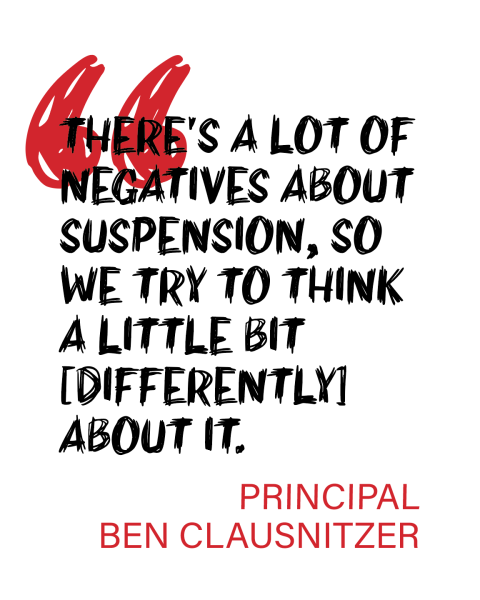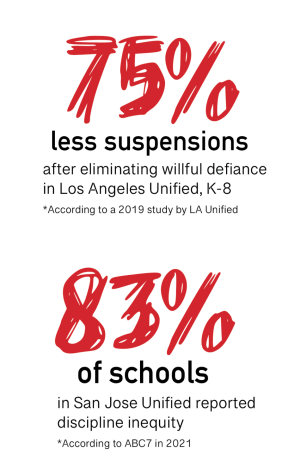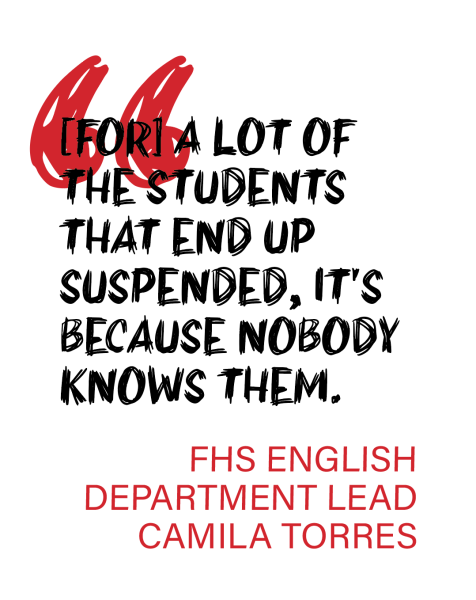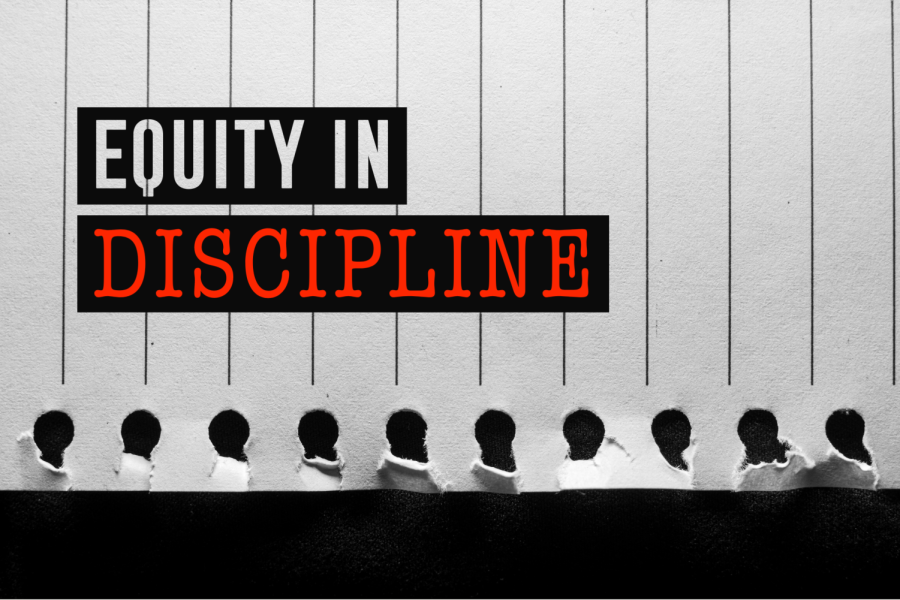Out-of-school suspension has existed as a form of student discipline since the 1960s, but new state legislation may see a significant step in its decline. According to Fremont High School English teacher and English Department Lead Camila Torres, California Senate Bill 274 comes in the wake of statewide sentiment — including her personal opinion — that suspension should be ushered out in favor of more restorative forms of student discipline.
“You don’t get suspended in your regular job for mouthing off to your boss or mouthing off to coworkers, so it’s not a real world consequence,” Torres said. “It doesn’t teach students anything that is actually useful in any way. It just teaches them what behavior is allowed and what behavior is not, and at that point, it’s too animalistic for me.”
SB 274, proposed by Senator Nancy Skinner and currently waiting to be considered by the state Appropriations Committee, could change that. SB 274 would prohibit school administration from suspending or expelling students for “willful defiance” in public and charter schools through grade 12. Notably, it would not affect teachers’ existing rights to briefly suspend students from their classrooms.
While Torres says suspensions are still more common at FHS than at other FUHSD schools such as MVHS, she acknowledges FHS and FUHSD view suspension as a severe disciplinary measure. Principal Ben Clausnitzer agrees, noting that these beliefs lie behind MVHS’ policies for student discipline.
“There’s a lot of negatives about suspension, so we try to think a little bit [differently] about it,” Clausnitzer said. “If a student makes a bad decision, let’s focus on the behavior. If there needs to be a consequence, you don’t just talk about the consequence — let’s talk about the learning and let’s get the student the support they need.”
 Homestead High School senior Dan Penalosa believes suspensions deprive students of the opportunity to participate in school and should be limited to extreme circumstances such as violence and drug or weapon possession, and welcomes SB 274 as a much-needed change to keep school administration accountable for equity in terms of disciplinary action.
Homestead High School senior Dan Penalosa believes suspensions deprive students of the opportunity to participate in school and should be limited to extreme circumstances such as violence and drug or weapon possession, and welcomes SB 274 as a much-needed change to keep school administration accountable for equity in terms of disciplinary action.
“I believe that the district should be doing more to protect their students, and to actually expel students who are, say, abusing other students or just [inflicting] violence [on] other students,” Penalosa said. “But when it’s at the district’s discretion, and [they] have the choice to expel or suspend or just to use other disciplinary actions, I feel like [they] have no place in suspending students who don’t deserve suspensions.”
Recent research has shown that within California, suspensions affect Hispanic and Black students disproportionately. According to Penalosa, similar trends exist within FUHSD. Foinstance, reports by the Civil Rights Data Collection found that in 2017, 41% of HHS’ out-of-school suspensions were given to Hispanic students, who only made up 25% of the overall student body. Likewise, in 2018, 6% of HHS’ Hispanic student population were suspended, compared to a state average of 3%. Penalosa attributes statistics like these to implicit bias within FUHSD staff and administration.
Indeed, SB 274’s rationale for its proposed changes notes that students of color are more likely to be targeted via willful defiance suspensions. Both Torres and Clausnitzer point to this growing awareness as the reason for FUHSD’s stance, with Clausnitzer adding that SB 274 is just a single step in a growing process to address racial disparity in schools throughout California.
“Any system in general needs to be looked at for this kind of institutional bias that might exist, whether it’s unintentional or intentional,” Clausnitzer said. “[SB 274 is] trying to think about a system that has disproportionately affected marginalized communities, and is trying to think about changing that system. I don’t think [SB 274] would affect how students are behaving or schools trying to respond to that behavior. I think it’s about getting the support that students need and focusing on learning.”
On the other hand, Penalosa says SB 274 would improve students’ relationship with school administration within FUHSD and beyond.
“[SB 274 would] give the student community a lot more space to breathe,” Penalosa said. “[We wouldn’t] have to worry about running into [administration] at the wrong time or not being perfectly respectful. That [would] give us a lot more room to speak up on what’s important to us and make us a lot less scared of admin in general, which is a good thing.”
Torres says that at FHS, students’ own perception of discrimination they’ve faced has created divisions not just between marginalized students and administration, but also between the entire student body. She recalls students describing how the FHS campus is segregated during free periods, with white and Asian students on one half, and Black and Latinx students on the other. However, she has concerns that SB 274 could actually make systemic bias worse by giving critics the means to argue that the law enables students to behave even more disruptively, thus drawing attention to SB 274 and away from the equity issue itself.
“The problem [is] that putting more laws in place actually also doesn’t get to the root of the ‘why’ [of systemic bias], so I think that [we are] still very widely missing the mark,” Torres said. “[SB 724 is] almost a shield for teachers to say, ‘This law passed. Now everybody is even more rude. I don’t feel safe in my classroom.’ That’s a very reactionary way to look at what’s happening, because it’s not getting to the root of the cause. It’s only looking at the actual behavior. So it could actually do more damage than good in that way.”
 Clausnitzer, Penalosa and Torres all emphasize the importance of first speaking with students to address behavioral issues, in lieu of turning directly to disciplinary action. Torres in particular suggests that school administrators could place more emphasis on building community structures during school hours, in order to provide all students with support networks they can rely on.
Clausnitzer, Penalosa and Torres all emphasize the importance of first speaking with students to address behavioral issues, in lieu of turning directly to disciplinary action. Torres in particular suggests that school administrators could place more emphasis on building community structures during school hours, in order to provide all students with support networks they can rely on.
“[For] a lot of the students that end up suspended, it’s because nobody knows them,” Torres said. “Nobody connects with them. No one is checking up on them. They don’t have the community built around them to keep them accountable. And so when we started working on how to use Advisories and Tutorials instead of trying to find a way to create community, we decided we need more time for homework, and we didn’t take advantage of [how] community is almost always a wonderful answer and a wonderful antidote to behavioral problems.”










